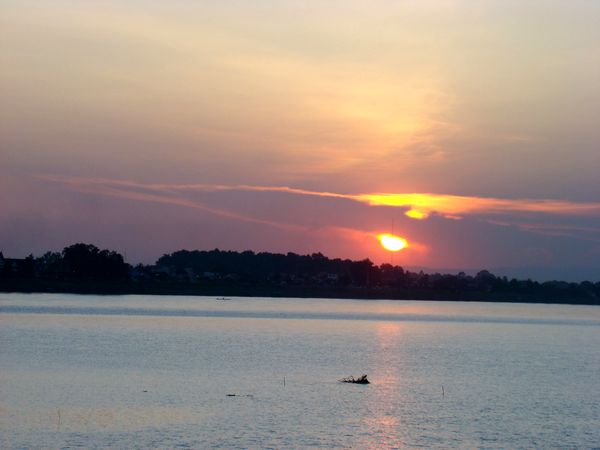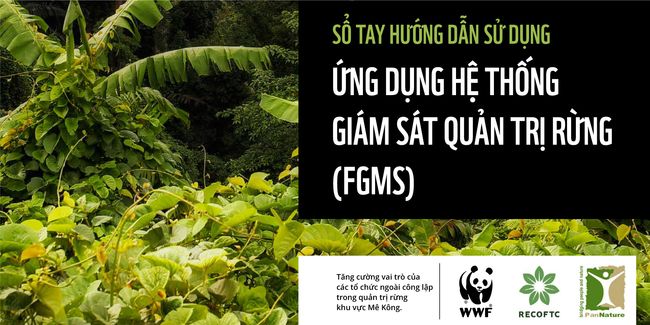In a collaborative effort to combat deforestation and restore critical habitat, several organizations joined forces to launch the "Regreening Forest 2024" initiative. Held on June 2nd in Van Ho commune, Son La province, the event marks a significant step towards a long-term goal of restoring 500 hectares of forest along the ecological corridor connecting Hoa Binh and Son La provinces.

Calling for Cancelation of The Proposed Sanakham Project
On 2 June, Save the Mekong Coalition (StM) has issued a statement to the Mekong River Commission (MRC) and governments in the lower Mekong region, calling for the Sanakham and other planned Mekong mainstream dams to be canceled.
The Mekong River Commission (MRC) announced on 11 May that the proposed Sanakham hydropower project in Laos will undergo the MRC’s Prior Consultation process.[1] Sanakham is the sixth mainstream dam to be submitted for Prior Consultation.
According to StM, the proposed Sanakham dam is expensive, unnecessary, and risky – and should be canceled. The 684-megawatt (MW) dam would cost over $2 billion and take eight years to build. If averaged out over eight years, this means that Sanakham dam would be adding 90 MW a year, which pales in comparison to the installation of more sustainable energy options being rolled out in the region. For example, between April and July 2019, neighboring Vietnam added 4,400 MW from solar,[2] which is more than six times the installed capacity of Sanakham dam.
With the rapid changing landscape in power sector technologies and investments, there is a risk that large hydropower projects like Sankham dam, which take several years to build and require majority of financing up-front, will become stranded assets. Risks are compounded by climate change and existing hydropower projects upstream, which are making water flows and levels more unpredictable, which in turn will impact on the amount of electricity generated by Sanakham and other mainstream dams.
Most of the electricity generated by Sanakham dam is slated for export to Thailand. However, Thailand has a major over-supply of electricity, which has increased even more due to the economic fall-out from the COVID-19 pandemic. The COVID-19 pandemic has also highlighted the importance of the Mekong’s farmlands, forests, rivers, wetlands and fisheries as a safety net during times of crisis. Local people’s continued access to rivers and natural resources are critical to ensuring a more healthy and equitable recovery from the pandemic.
Despite the proposed Sanakham dam site being on the Mekong mainstream, about two kilometres upstream of the Thai-Lao border, there’s been no serious consideration of – let alone meaningful consultations on – the project’s transboundary impacts. Large sections of Sanakham’s Transboundary Environmental and Social Impact Assessment and Cumulative Impact Assessment (TBESIA/CIA)[3] are outdated and plagiarized from the Pak Lay TBESIA/CIA. For example, the chapters on Public Involvement, Conclusion, and Recommendations sections are the same as Pak Lay TBESIA/CIA, with the only real difference being the name of the project. The TBESIA/CIA makes little to no reference to multiple studies about the Mekong and impacts of hydropower published in the last ten years.[4] For a project that would impact a major transboundary river upon which millions rely, this is unacceptable.
Rather than proceeding with yet another flawed ‘consultation’ process, StM calls for the Sanakham and other planned Mekong mainstream dams to be canceled. StM urges lower Mekong governments and the MRC to address outstanding concerns regarding the impacts of existing dams; conduct a participatory and comprehensive energy options assessment and prioritise timebound steps towards a just energy transition that maintains the Mekong’s critical ecosystems while meeting and safeguarding the needs of communities in the region, address outstanding concerns on the Prior Consultation process.
For more details, kindly read the full statement here
[1] See MRC Media release, 11 May 2020, ‘Laos to undertake prior consultation for Sanakham hydropower project’
[2] See ‘Update Vietnam Power Sector’, presentation at the 26th Meeting of the Regional Power Trade Coordination Committee (RPTCC-26), Hanoi, November 2019
[3] See Sankaham Hydropower Project, ‘Transboundary Environmental and Social Impact Assessment and Cumulative Impact Assessment’, October 2018
[4] These include but are not limited to: MRC Technical review reports of mainstream dams submitted to Prior Consultation; the findings and recommendations of the 2010 Strategic Environmental Assessment of Hydropower on the Mekong Mainstream; the findings and recommendations of the MRC Council Study etc, which are available through the MRC website



